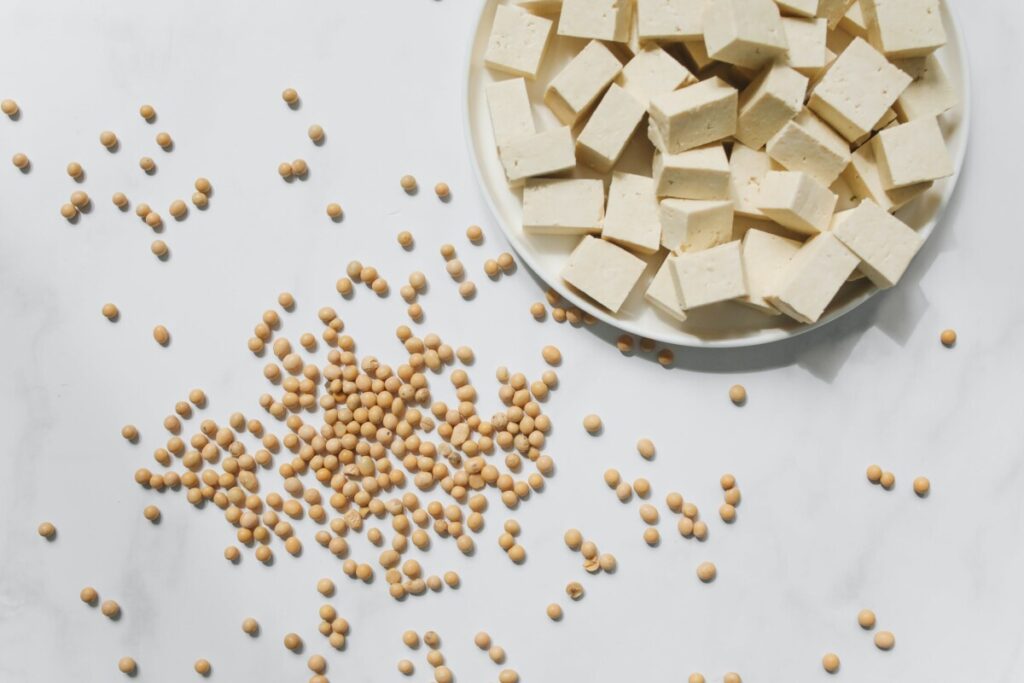The notion that you need meat to build muscle is a thing of the past. In today’s world of nutrition and fitness, plant-based diets are taking center stage, proving that you can achieve impressive gains without reliance on animal products. By strategically incorporating protein-rich plant foods into your meals, you can fuel your workouts, support muscle growth, and elevate your overall health. Explore the world of protein-packed plants and uncover the key elements of building muscle on a plant-based diet.
The Power of Plant-Based Proteins
Quinoa: The Complete Protein
Among the plant kingdoms, quinoa is a complete protein. It has every one of the nine necessary amino acids that our bodies cannot manufacture independently.
This ancient grain is a versatile addition to any plant-based diet, providing a solid foundation for muscle growth.
Soy: The Muscle-Building Bean
Soy products like tofu, tempeh, and edamame are protein-rich champions. They are packed with nutrients and offer a versatile canvas for creating muscle-boosting meals. Additionally, soy is rich in leucine, an amino acid that plays an important part in muscle protein synthesis.

Strategic Meal Planning for Muscle Growth
Balanced Breakfasts for Building
Kickstart your day with a protein-packed breakfast. Opt for a hearty tofu scramble with vegetables, a sprinkle of nutritional yeast, and whole-grain toast. This combination provides a substantial dose of protein, fibre, and essential nutrients to set the stage for a day of muscle-building success.
Lunchtime Power Plates
Craft a lunch that fuels your midday activities. Consider a quinoa and black bean salad with avocado and a tahini dressing. This vibrant dish not only offers a robust protein punch but also provides healthy fats, complex carbohydrates, and an array of micronutrients crucial for sustained energy and muscle repair.
Smart Snacking Strategies
Elevate your snacking game with protein-rich options. A handful of almonds or pumpkin seeds can be a convenient and portable snack that provides essential amino acids. For a satisfying twist, try roasting chickpeas with your favourite spices for a crunchy, protein-packed treat.
Pre- and Post-Workout Fuel
Energizing Pre-Workout Eats
Before hitting the gym, opt for a balanced snack that combines carbohydrates with a moderate amount of protein. A banana with a spoonful of almond butter on top or a small smoothie made with plant-based protein powder can provide the energy and nutrients needed for a successful workout.
Recovery Rituals
Post-workout nutrition is crucial for muscle recovery. A smoothie with plant-based protein powder, mixed berries, and a handful of spinach can swiftly replenish glycogen stores and kickstart the repair process. Remember to hydrate with water or a hydrating beverage infused with electrolytes.
Read More:
Easy Shrimp Recipe: A Delectable Delight for Seafood Lovers
Places Foodies Must Visit in Bangkok
The Role of Supplements
Plant-Based Protein Powders
While whole foods should be the cornerstone of a plant-based diet, protein powders can be a convenient supplement, especially for those with high protein requirements. Look for pea, rice, or hemp protein powders for a clean, plant-based protein boost.
Branched-Chain Amino Acids (BCAAs)
BCAAs, particularly leucine, isoleucine, and valine, are crucial in muscle protein synthesis. While they can be found in plant-based sources like soy and quinoa, supplementing with BCAAs can benefit those seeking to optimize muscle growth and recovery.
Rest and Recovery: The Unsung Heroes
In pursuing muscle growth, it’s crucial to pay attention to the importance of rest and recovery. Adequate sleep, stress management, and mindful relaxation techniques all play integral roles in the body’s ability to repair and build muscle tissue.
Benefits of a Plant-Based Diet for Muscle Building
There are several benefits to a plant-based diet for muscle building. These include:
- Reduced risk of heart disease.
- Reduced risk of stroke.
- Reduced risk of type 2 diabetes.
- Reduced risk of certain types of cancer.
- Improved digestion.
- Increased energy levels.
- Better sleep.
